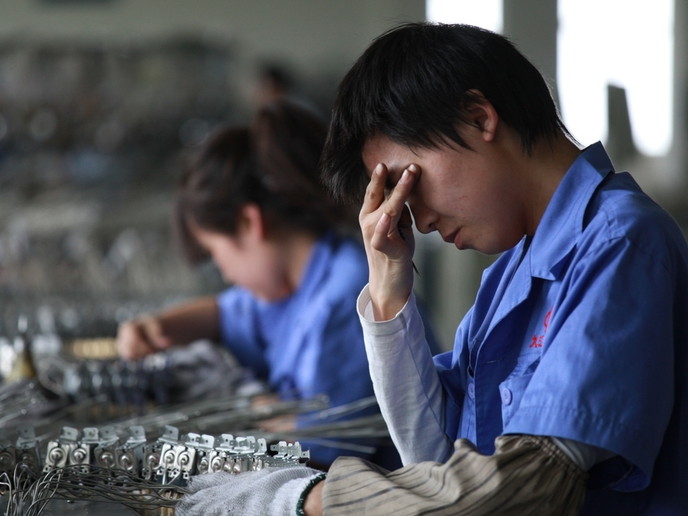Chinese worker rights affect you
The plight of Chinese workers is not strictly a domestic problem, it affects Europe and the rest of the world. Western people should be concerned, as China’s low wages and repressive conditions partly explain job losses in their countries. At the same time, Western businesses have a financial interest in maintaining the status quo. This prompted establishment of the Chinese Labour project to detail the labour situation in China. This research was undertaken with the support of the Marie Curie programme. Specifically, the project examined the expectations of Chinese domestic migrant workers regarding hours and salaries, and the roles of various actors in shaping such goals. Researchers also considered the implications for EU investors of rising expectations among Chinese workers. The research involved a comparative survey of garment factory workers in China and Cambodia. The survey documented actual wages, desired wages, the workers’ awareness of their rights, and the activities of trade unions. Researchers interviewed Chinese labour activists and also drew upon Chinese-language policy documents and media reports. The project team detailed a thorough picture of the situation of labour activism in China, whether organised by labour NGOs or by workers directly. Political repression Results showed that most Chinese workers have a very selective knowledge of their rights. They generally focus on matters affecting their personal incomes. Yet, knowledge of collective rights, especially those related to unionism or striking, remains very poor. “This is related to the very nature of Chinese labour law,” says Dr Ivan Franceschini, lead researcher, “which for political reasons emphasises individual rights while undermining collective rights.” The level of awareness was unrelated to age. This finding contradicts pervasive notions, both of younger workers supposedly being more active and of a ‘rights awakening’ taking place among this age cohort. Nevertheless, in recent years, a small group of Chinese activists has started promoting a more militant approach to labour activism. Their objective has been to promote collective bargaining as a way to empower workers at the workplace level. The Chinese government response was predictable. “Since 2015, we have witnessed a series of extremely harsh crackdowns targeting labour activists,” reports Dr Franceschini. “This shows that the Chinese authorities are determined to keep a strong grip on labour activism in the country in order not to threaten investment, especially not when the Chinese economy is slowing.” During 2018 and 2019, political repression in the country substantially worsened, with new waves of arrests. A new journal The project’s achievements also include establishment of the Made in China Journal, a quarterly on labour, civil society, and human rights in China. The publication has helped create a global community of people concerned with the latest trends in Chinese society, in particular for what regards labour issues. The journal has become popular, with more than 1 700 subscribers as of early 2019, and certain issues having been downloaded more than 20 000 times. The journal has become influential, playing a key role in framing policy discussions about Chinese labour issues. Chinese labour issues affect Europe. The project helped clarify the effects, while also organising a global community of researchers, activists, and policy-makers to address the topic.
Keywords
Chinese Labour, labour, rights, China, labour activism, collective rights, Chinese economy, worker rights, unionism



